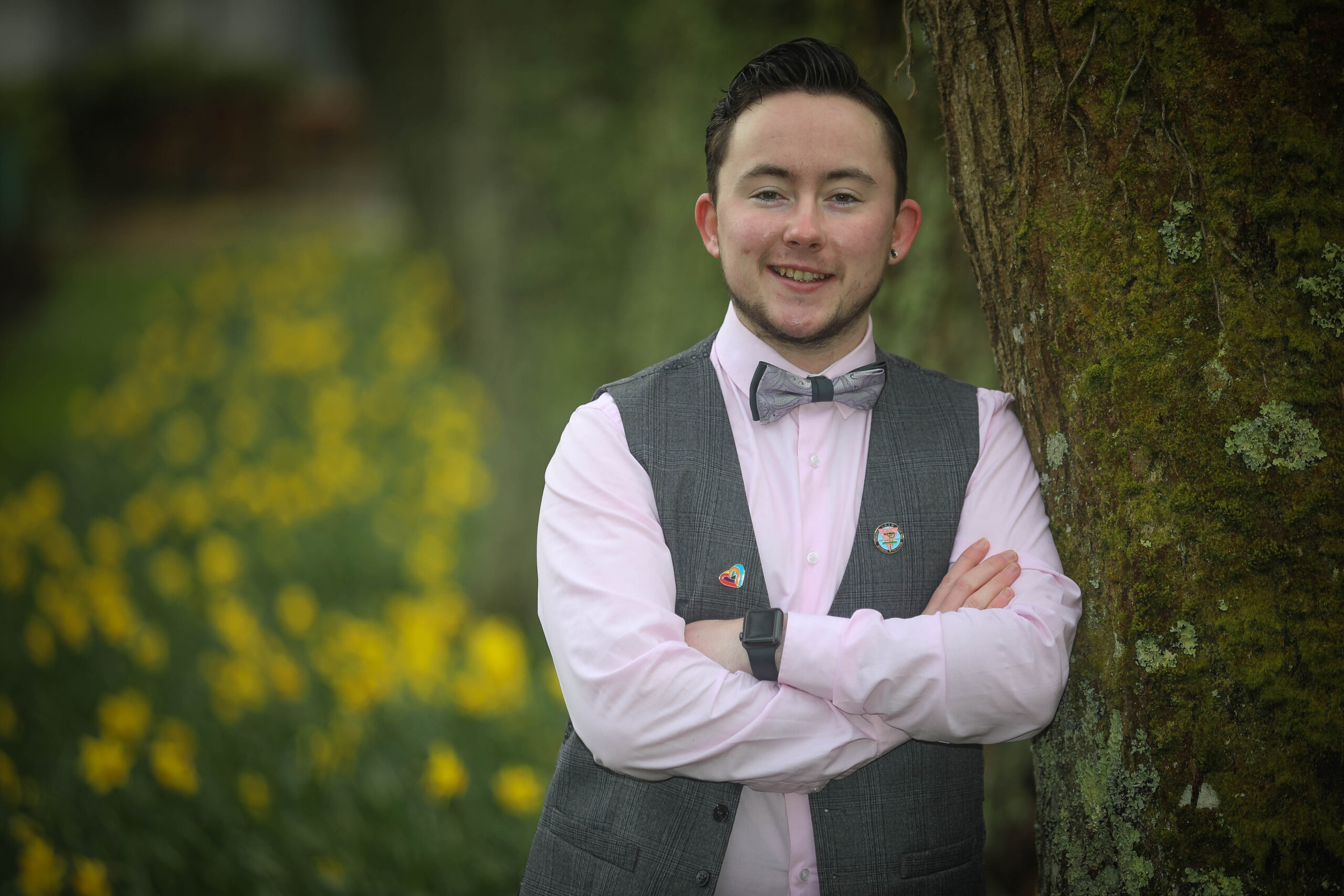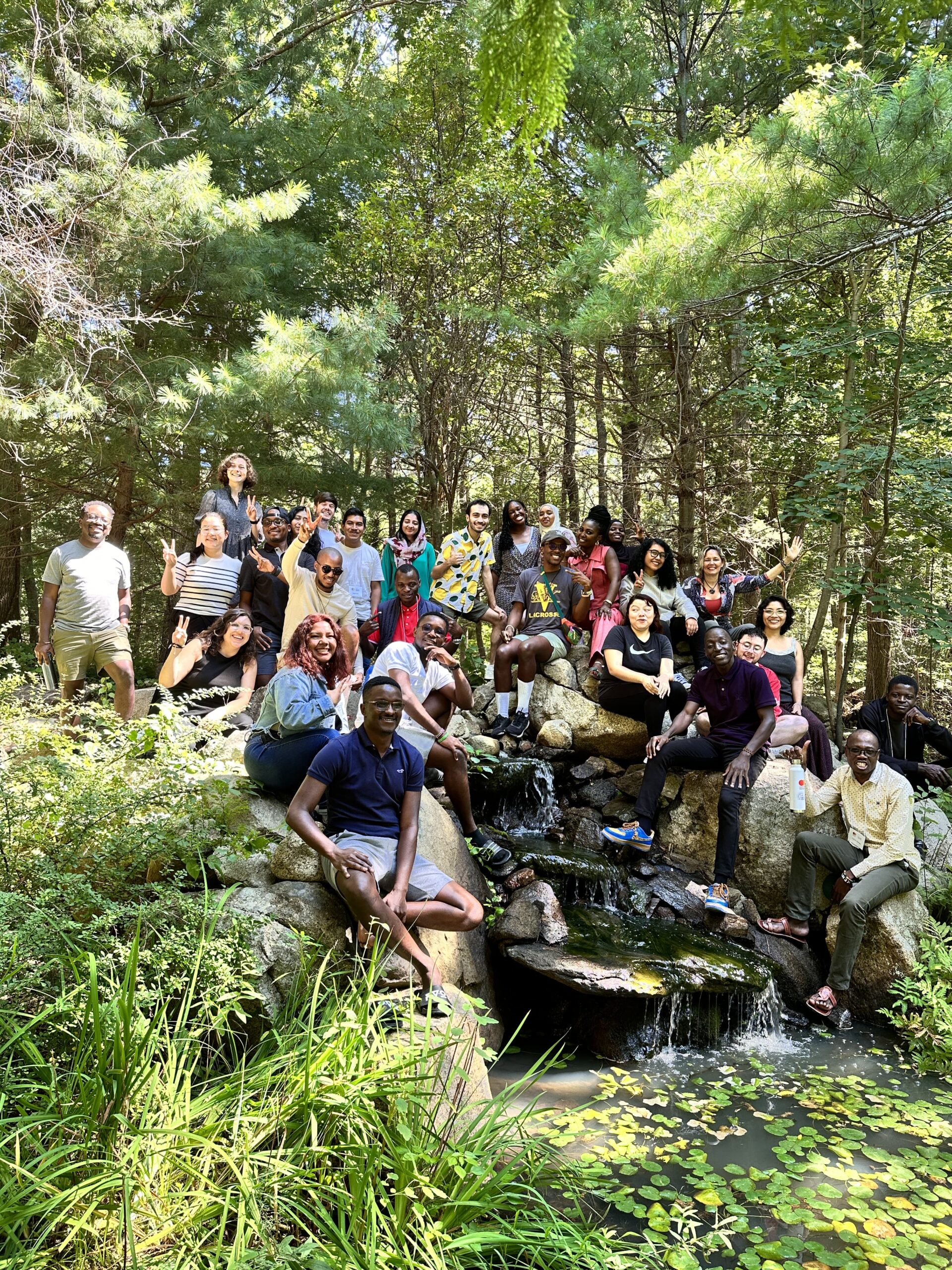
“Climate action can seem overwhelming; with all the media, reports and statistics, you might feel like you don’t know where to start.”
University of Galway student Cameron Noah Keighron has joined 35 other students from 18 countries across the globe, to pave the way for a new generation of climate action. Through the Tallories Network, a cooperation for social responsibility in Higher Education, the group have devised a ten-year action plan to drive civic engagement and influence policy around education and meaningful research on the gendered impacts of climate change.
Cois Coiribe: Can you tell us about the The Talloires Network and how you first got involved in this movement?
Cameron Noah Keighron: The Talloires Network is a growing global cooperation of 431 university Presidents, Vice-Chancellors and Rectors in 86 countries who have committed to promoting and developing civic roles and social responsibilities in Higher Education. It is the largest network of its kind focusing on civic engagement. Their mission, which you can read about in the Talloires Declaration, is to improve the communities we all live in and provide opportunities for collaboration and innovation. So, that means co-creating change with universities, community partners and industrial partners in the areas of disease, famine, structural racism, gender oppression, economic inequality, climate change and political polarisation (find out more about these areas here).

I first got involved in 2021 during the COVID-19 pandemic, where I saw an opportunity to be a part of a group called the “Next Generation of Leaders” (NGL) programme. This programme focused on four core areas: civic engagement in Higher Education, pandemic recovery & resilience, structured listening methods and innovations in gender equity. All of us involved are committed to creating a better world than the one we see. We see health, gender equity, climate change and access to education as core areas where the voices of young people are at times ignored or left out, and we wanted to change that. We were a group of young people from across the globe, coming together to drum up innovative solutions to some of these key challenges, and thinking about the specific role that the university can and should play. 36 of 200+ students were selected from 18 countries to take part. This group was then split into four working groups, each focused on a specific area.
I worked with an incredible group, exploring the impact of climate change and COVID-19 on women and girls. We made policy recommendations for Higher Education that we felt could help. Over the past 2.5 years, our group have worked together across many continents and time zones, to forge a plan to sustain the NGL programme, ensuring that more students and young people can shape the future of the world that they will grow up in. This programme has also allowed us to showcase some of the projects we are already doing in our own communities around mentorship, opportunities for young people and circulating information.
CC: What have you learned about the impacts of climate change on gender inequality since joining this group?
CNK: 80% of people displaced by climate change are women (UN Environment), and most of the industries and employment opportunities threatened by climate change disproportionately affect women and girls around the world. Through the NGL Programme, we created a project titled “Gender in Dual Crisis: Women at the Intersection of Climate Change and COVID-19” where we explored through multiple lenses (including geographical location, socio economic status, education and access to resources and information), the effect that both these crises had on an already marginalised group. We wanted to inspire our Higher Education institutes to take a leadership role in co-creating solutions for women and girls, by women and girls.
From our research, we found that COVID-19 added extra economic pressures, complementary to existing structural barriers, discriminatory social norms and gender inequalities that were already exacerbated by climate change. Women faced an increased level of violence during COVID-19 with key sectors of employment such as tourism, manufacturing, commerce and paid domestic work taking a sharp decline during the pandemic. This only served to heighten the discrimination that many women and girls were facing. We explored the role of women in agriculture, food and water (key areas affected by climate change), unpacking challenges in those areas such as unequal decision-making power, violence, extreme weather and access to resources. We found that there was a lack of gendered analysis in discussions about climate change. From the absence of women’s and girls’ perspectives, we noted a tendency towards misogynism in working policies, particularly in response to global pandemics.
Following this work, there were a few policy changes that we recommended. Firstly, knowledge can only be cultivated where it is supported, and there is a need for meaningful inclusion of women, girls and indigenous communities in research unpacking the gendered impacts of climate change. This research must be action-oriented, employing innovative tools to address issues in a time-sensitive manner. Secondly, we have recommended policy that safeguards access to education and upskilling, especially in areas most impacted by climate change. Easily overlooked factors such as housing, finances, health care and food all play a significant role in facilitating access to education. It’s worth highlighting that equal access and opportunity improves the quality of research because diversity is key to a well-rounded perspective on a global issues like climate change. That brings me to our last recommendation – network creation. Universities have a unique opportunity to create national and international networks in which ideas and best practices can be shared. Given the large community of students, staff and alumni available to each university, there is huge potential for those communities to pull together and lobby for specific policies and laws.
CC: What are some of the action steps that have come out of your most recent deliberation event?
CNK: Most recently, our NGL group travelled to Boston to complete a programme of work expanding the NGL programme beyond us as students and our institutions. We, as young people, are aware that there is a generation coming up behind us and we must leave something sustainable for them to be a part of. At the beginning of the last academic year, the 36 of us agreed to take on a year-long project to expand our skills in a way that supports the sustainable growth of youth projects. We have begun the process of training ourselves as mentors. This involves a lot of sessions on grant writing and budgets – the fun stuff! As well as leveraging resources and self-care. On our home campuses, we presented civic engagement awards to rectors/presidents, and held a range of campus events to capture the needs and opinions of young people in our communities. In 2023, we presented a proposal to Mastercard Foundation, which secured us a grant of 250,000 dollars to continue our efforts online for another year. But our targets extend well beyond that; we now have a ten-year plan in action to open up the NGL programme to more students, young people and universities.
CC: What would you say to a student who wants to get involved in climate action?
CNK: Climate action can seem overwhelming with all the media, reports and statistics; you might feel like you don’t know where to start. I have also felt like this, but there are lots of ways to get involved, and lots of people who want to help. If you are a university student, you can get involved with the Students’ Union Environmental work. There are also plenty of places in the City to get involved through the Galway City Community Network, local volunteering opportunities, Youth Work Ireland Galway or simply by starting your own initiative. Find a project or initiative that fills you with passion and excitement – do something that is rewarding, for you and for the environment around you. Remember, things will always seem like an uphill battle, but there are plenty of us to help you along the way!
SDGs discussed in this article:
Profiles

Cameron Noah Keighron is a final year PhD researcher in the school of medicine looking at stem cell therapies for Parkinson’s Disease. Cameron is passionate about community engagement, creating opportunities for young people's voices to be heard. They work to improve access to education, LGBT+ rights and climate justice. They have also worked extensively in including young people's voices in patient, public involvement in medical research with a focus on diabetes innovations.